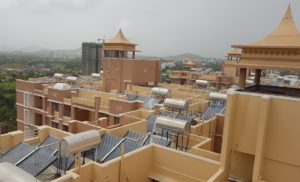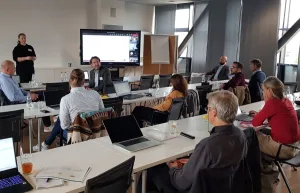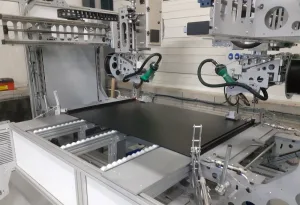

India: Planning Commission Recommends Performance-based Incentives
According to Dr Kirit S. Parikh, solar water heating has already become a cost-effective energy alternative in India and will play a crucial role in achieving energy independence in the long run. Parikh is the chairman of an expert committee that the Government of India’s Planning Commission established to devise the so-called Integrated Energy Policy (IEP). This expert committee estimates a total of 10 million m2 of installed collector area by the year 2022, according to a report published in August of 2006.
Dr. Kirit S. Parikh, head of the Integrated Energy Policy Expert Committee, developed recommendations for an Integrated Energy Policy for India in 2006. Photo: Planning Commission, Government of India
In an interview with the editorial team of solarthermalworld.org in India, Parikh recommended performance-based incentives for solar thermal systems, rather than granting generous subsidies for them. Capital subsidies, which only encourage investment without ensuring high yields, should have already stopped by the end of the 10th national Five Year Plan (2002 to 2007), according to the professor Emeritus. The government, however, only decided to reduce the total amount of subsidies as the sector still needed the support scheme for attracting new clients. Nevertheless, the committee’s intention is to let them expire during the 11th 5-year plan (2007 to 2012).
The Planning Commission has also realised that solar water heating systems are already commercial. The main hurdle for installing such systems concerns the expenses needed to retrofit the plumbing in households and industrial buildings. Households, commercial establishments and factories should be encouraged to install solar water heaters with a Demand Side Management (DSM) programme that will be run by electricity utilities. Alternatively, incentives may be granted in the form of income tax rebates, property tax rebates, rebates in transfer fees and rebates in electricity charges. Moreover, building laws should be amended to ensure that all new buildings and factories possess solar water heaters. The government, including the defence and public sector, account for a significant amount of newly constructed buildings and heating installations. They can set an example by conforming building laws already implemented on the state level.
Report of the Planning Commission (2006)
http://planningcommission.nic.in/reports/genrep/rep_intengy.pdf
http://planningcommission.nic.in


